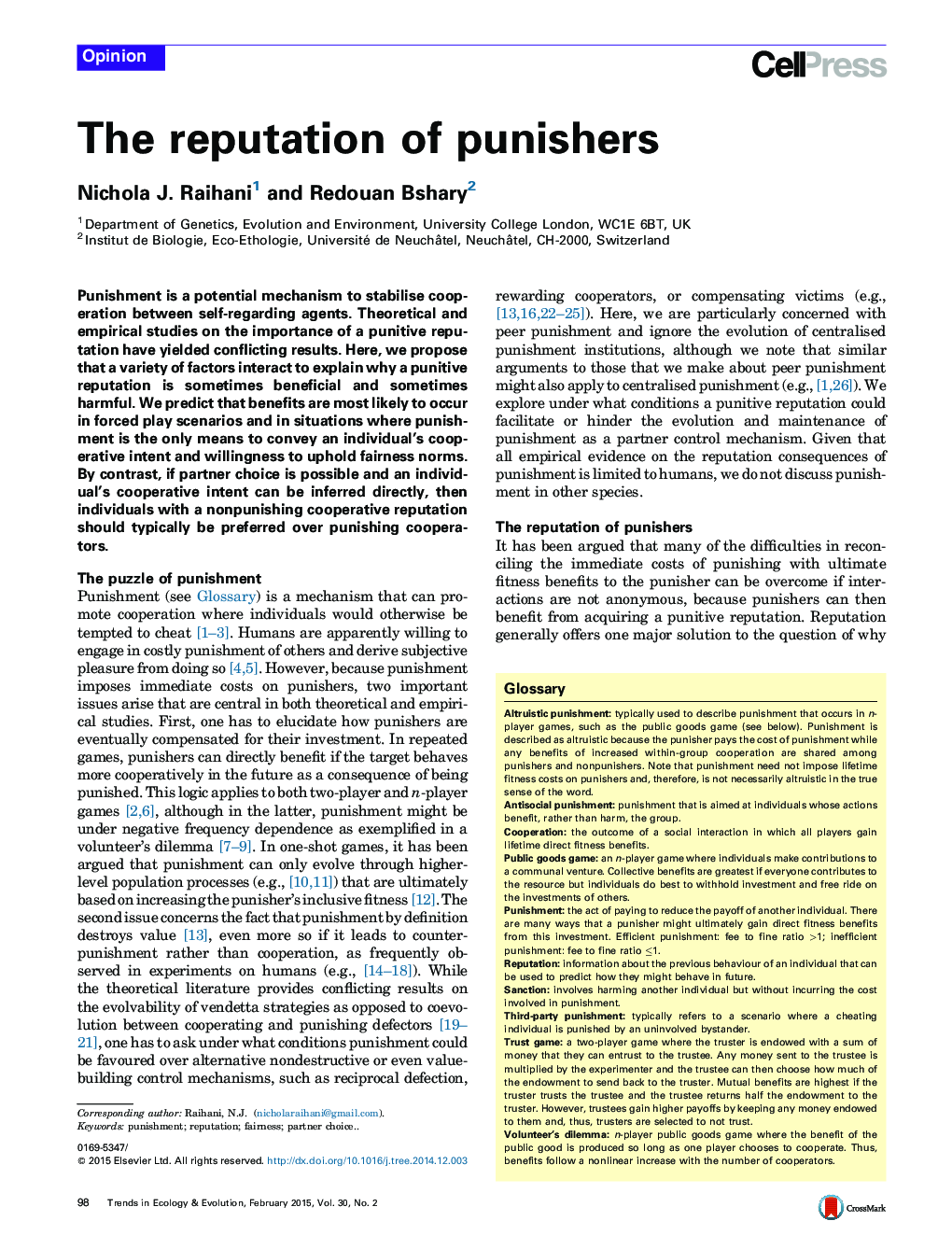| Article ID | Journal | Published Year | Pages | File Type |
|---|---|---|---|---|
| 142362 | Trends in Ecology & Evolution | 2015 | 6 Pages |
•Punishment can evolve via reputation benefits to the punisher but the reputation consequences of punishment are unclear.•We argue that punishers could gain a competitive or a cooperative reputation, depending on the circumstances.•Punishers benefit from a competitive reputation in forced play interactions but may be avoided when partner choice is possible.•If competitive motives underpinning punishment can be ruled out, punishers may be perceived in the same way as helpful individuals.
Punishment is a potential mechanism to stabilise cooperation between self-regarding agents. Theoretical and empirical studies on the importance of a punitive reputation have yielded conflicting results. Here, we propose that a variety of factors interact to explain why a punitive reputation is sometimes beneficial and sometimes harmful. We predict that benefits are most likely to occur in forced play scenarios and in situations where punishment is the only means to convey an individual's cooperative intent and willingness to uphold fairness norms. By contrast, if partner choice is possible and an individual's cooperative intent can be inferred directly, then individuals with a nonpunishing cooperative reputation should typically be preferred over punishing cooperators.
